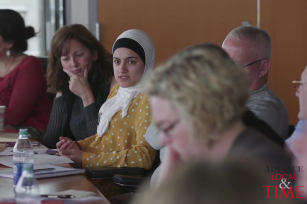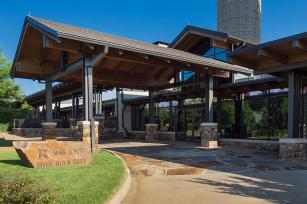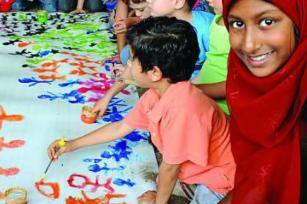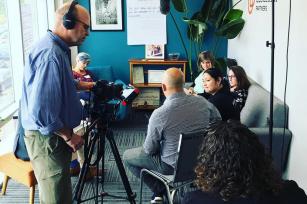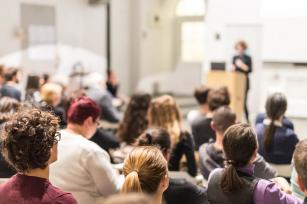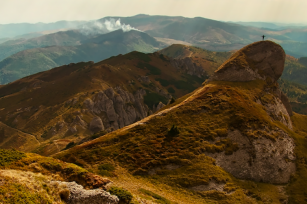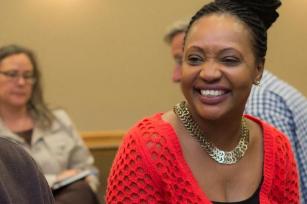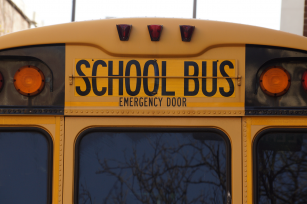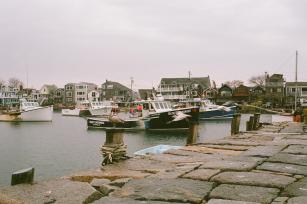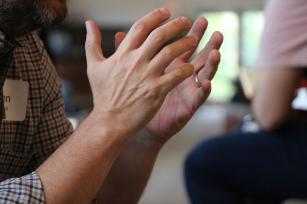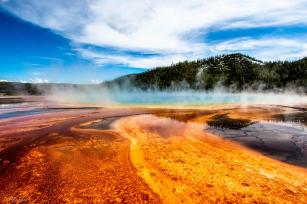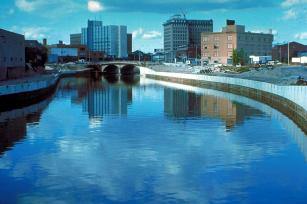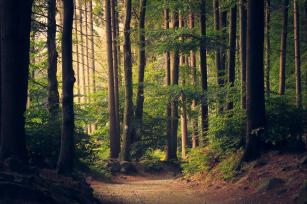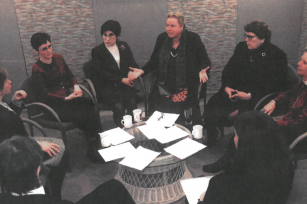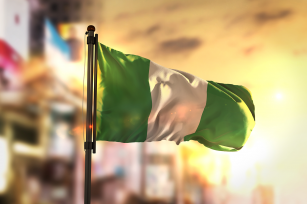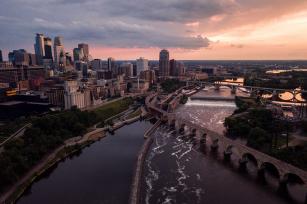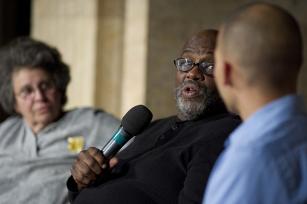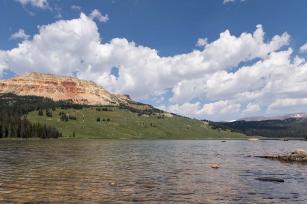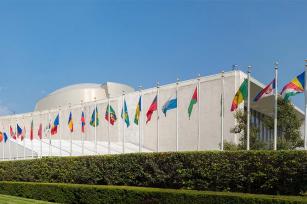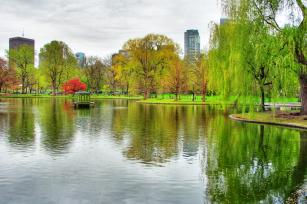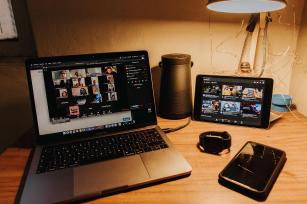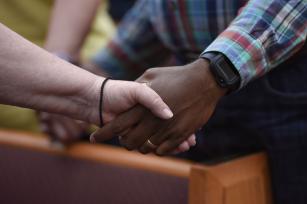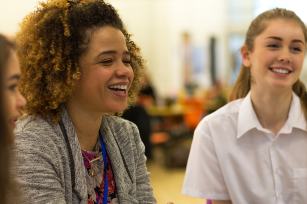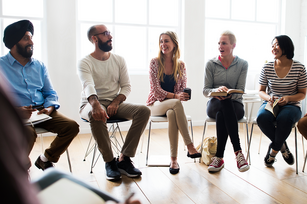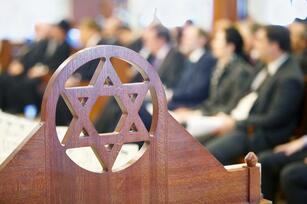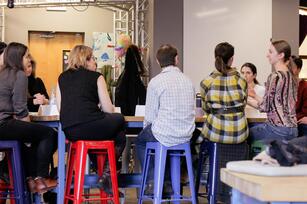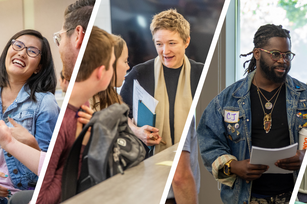
Breadcrumb
- Essential Partners
- Our Impact
- Impact Stories
- Protecting the Copper River Watershed Ecosystem
Protecting the Copper River Watershed Ecosystem
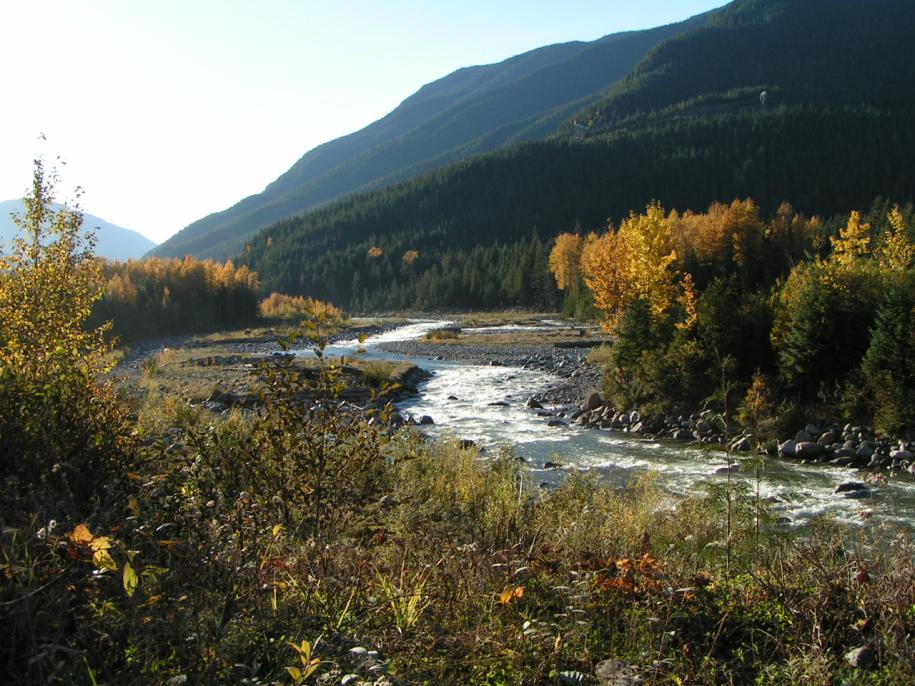
“There are some [negatively impactful] proposals that could have been avoided if we’d had some dialogue [like this].”
Mike Mikelson, draft gillnetter
Cordova, Alaska
The Copper River in southcentral Alaska is among the largest in the United States, famed for its thriving wetland ecosystems and natural resources—especially its wild salmon fisheries, on which hundreds of local families and businesses depend.
To protect the river from overuse, the Copper River Watershed Project creates deeper partnerships between the people who rely on it. Rooted at the intersection of place and value, CRWP was “born of deep concern for the region’s resources and economies dependent on those resources [and strives] to support the community values of Copper River watershed residents in our efforts to foster sustainable economic development.”
In 2017, CRWP’s Executive Director Kristin Carpenter planned to host the organization’s first-ever Salmon Harvesters Roundtable, a discussion circle for commercial salmon harvesters, sport fishers, elected officials, representatives from the Alaska Fish & Game Department, and other stakeholders to share their experiences with the watershed and its resources, as well as their hopes, concerns, and plans for its continued use.
Building a Future, Together
CRWP intended for the roundtable to build relationships and trust among those shaping the watershed’s future as a source of subsistence, recreation, and commerce.
These were diverse stakeholders who shared a deep love and respect for the river, but who often felt at odds with each other. This meant the conversation had the potential to become turbulent, churning up deeply-held convictions about livelihoods, personal connections to the land and waters, and family legacies—not to mention controversial subjects like climate change and state wildlife protections.
With so much riding on the outcome of the roundtable, Carpenter asked Essential Partners to help create space for a heartfelt and constructive conversation about individual values and shared futures.
EP assigned an expert facilitator to work with Carpenter. Starting from bedrock, they clarified purposes, designed and planned the roundtable, crafted questions for deep reflection, and prepared CRWP staff to facilitate the conversation.
Dialogue, Community, Sustainability
Finally, in December 2017, in a small seaside town of just over 2,000 Alaskans, 21 people turned out to talk about the watershed that linked and sustained their community.
Starting with a well-crafted question about personal connections to the river, the conversation ranged from the minutiae of commercial and sport fishing to past disagreements between stakeholders—but they navigated their differences constructively, and the structure and facilitation of the gathering prevailed. The first-ever roundtable had been a success.
From the official minutes of the December 2017 roundtable:
- Cordova Mayor Clay Koplin: “[It is] valuable to keep having this kind of conversation because it helps focus on the resource rather than each type of fisherman protecting his position.”
- Mike Mikelson, draft gillnetter: “There are some [negatively impactful] proposals that could have been avoided if we’d had some dialogue [like this] among users.”
- Paul Harrell, Chitina Dipnetters Association: “We’re all concerned about the health of the fishery. If we’re doing something on our end that is hurting, we should know about it.”
- Mark Somerville, Alaska Department of Fish & Game: “This is one of the more productive meetings I’ve heard.”
- Shawn Gilman, draft gillnetter: “It’s good to have a rapport.”
As of 2020, CRWP continues to use constructive facilitation techniques and well-crafted questions in their annual Salmon Harvester Roundtable discussion, now in its third year running.
Related Impact Stories
Testimonials

Etionette Nshirmirimana, Burundian Master TrainerI realized that by using the “dialogue” approach, people could talk of what is deep in their heart, especially things that have harmed them.
Burundi

Cricket Fuller, The Christian Science MonitorThis wasn’t a policy debate [about guns]. Instead, two people whose backgrounds and views diverged in almost every way possible shared a moment of honesty that struck at the heart of the matter.
Boston, Massachusetts

Program ParticipantI felt an amazing sense of accomplishment when the Essential Partners training ended; that I'd done something important for my community and something important for me.
Massachusetts

Program ParticipantI am now open to new views and can moderate my impulse to debate or persuade others of different views
Montana
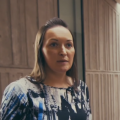
Louise O’Kane, Community Places[Essential Partners’] technique is used to explore contentious or divisive issues. So looking at renewable energy we thought this was an ideal opportunity to explore all the complexities of that issue. I found it a really useful method, and although this is the first time we’ve used it I am sure we’ll be using it again.
Northern Ireland, UK

Imam Sani IsahThrough this training, we will have more people in the stream of work that we do and become better equipped with the know-how, skills and techniques. But most important, together we will sow a seed that will germinate and become a source of the antidote to terrorism, fanaticism, bigotry and extremism.
Nigeria

Matthew Sandikie, Project PartnerThis has been quite different from other discussions in Liberia about peace. While many processes have been about how to reform ex-combatants, this was about how we may hold our own views but live together peacefully.
Liberia

Windor DorkoAs a former rebel, I really believe that if we had known about dialogue, perhaps we would not have had a civil war.
Liberia

Program ParticipantThis is the best adult learning experience I have had in the past five years. I wanted to learn new skills—I did!

Rebekah Shrestha, SVPEssential Partners has played a catalytic role in our ability to facilitate dialogue time and time again, and we could not have done this work without them.
Belfer Center for Innovation & Social Impact and Office of Strategic Planning, 92NY

Nicki Glasser, Policy CoordinatorWhat surprised me was how much you could transform a relationship during a three-hour conversation.
Transformation Center, Massachusetts

Anjali Bal, Associate Professor of MarketingOne of the things that we talked about was the ability to hear another person’s point of view, even if our minds aren’t changed. We have to remember that any sort of movement is movement. If we don’t acknowledge small movement, then we just stay on two different sides, and it’s all black and white, and we don’t hear each other.
Babson College, MA

Program ParticipantI read this comment from the 14th Dalai Lama: "Every change of mind is first of all a change of heart.” It seems appropriate for what we are doing.
Bayview, Michigan

Veronique Cavaillier, Director of Eastern Trade CouncilI think Essential Partners' training should be mandatory in every legislature. I think it should be a requirement.
The Council of State Governments

Misty Stoll, School Board TrusteeI ran for my local school board in 2018 and was elected. I use the skills in our meetings, whether I’m chairing the meeting or not. This makes the meetings much more productive. We don’t go over the same topics over and over again.
Wyoming

Janet Harris, Winthrop Rockefeller InstituteThe learning we received from Essential Partners has helped us open up space for people to have difficult conversations in a different way. The more we do this, the more we realize that dialogue has to be a part of all our work.
Arkansas

Belle AbayaTogether, we married our ideas to create a dialogue model that took into consideration our young people’s particular needs, and our culture.
The Conflict Resolution Group Foundation, Philippines

Bob Bordone, Expert and AuthorEssential Partners does the best work in the field of dialogue and communication.
Harvard Negotiation & Mediation Clinical Program, Co-Founder

Janele Nelson, Mission DirectorIn these divisive times, Essential Partners has given my local YMCA and now the national YMCA a means to build bridges through dialogue, re-establishing foundations for constructive change to occur.
YMCA of Pierce & Kitsap Counties (WA)

Belle AbayaWhat is special about Essential Partners' approach is that it promotes authenticity, reduces defensiveness, increases curiosity, and boosts connectedness.
The Conflict Resolution Group Foundation, Philippines

Seth Karamage, MediatorI am amazed at what came out—the way people shared their stories. This is not like a role-play; it really touched me.
Interfaith Mediation Centre, Nigeria

Douglas Stone, Sheila Heen, and Bruce PattonWe owe a debt of gratitude to Laura Chasin and her collaborators at Essential Partners… From them, we have learned about the transformative power of telling one’s story and speaking to the heart of the matter.
Difficult Conversations

Program ParticipantThe highlight for me was the interconnectedness of the participants’ views, mutual respect, and range of experiences within the group
Montana

Program ParticipantThis is a different tool for engagement. It’s not about you, it’s about others. It involves the art of listening and sincerely talking from the heart
Interfaith Mediation Centre, Nigeria

Andrew Wulf, PrincipalThe community dialogue was instrumental in helping us create a new policy around class rank. Though a controversial topic in the community, the dialogue EP helped us run ensured all voices were heard and valued. Regardless of how people felt with the final result, one parent summed it up best for us, ‘sometimes the process is more important than the outcome’.
Newburyport High School

Program ParticipantI did not anticipate having as many concrete takeaways as I do. I feel there is an immense practical application.

Kate CellThe thing that always feels like magic to me—and I’ve used it in several meetings that I’ve had since—is how the practitioners start by setting out pacts or agreements.
Union of Concerned Scientists, Massachusetts

Program ParticipantBefore, I thought all dialogue that does not culminate in solution was considered equivalent to failure. Now I see that dialogue is a stage complete in itself.
Burundi

Peter Cooke, Immigration Dialogue ParticipantThere’s a real difference to people who are coming to meetings. They say, wow this is so different. They all said how people were more on the ball, more congenial. Now people see growing the economy as a way to unify the receiving community and immigrant communities.
New Hampshire

Kim Davidson, OmbudsI’ve gained not only confidence but tools. The Essential Partners training was worth every penny.
Oberlin College, Ohio

Belle AbayaAuthentic conversations will lead people to reflect on their own thinking and transform their perspectives to include that of others.
The Conflict Resolution Group Foundation, Philippines

Linda Gryczan, MediatorInstead of demonizing and dehumanizing the other, we built a deeper connection. The fact that we disagree matters much less. It matters much more that we are neighbors in this community.
Montana Mediation Association

Undergraduate StudentI have never heard people talk so openly about race, especially in a class setting. Everyone was respectful and honest at the same time. The dialogue structure helped me learn about my peers and helped me feel more comfortable than I ever have about discussing controversial issues.
Gordon College, Massachusetts

Undergraduate StudentI notice that my classmates take much more care when speaking about people who practice other religions. They make fewer assumptions, and they’re more careful with their words to make sure to avoid unintentional connotations.
Bridgewater College, Virginia

Misty Stoll, School Board TrusteeThe Sheridan Community has changed in the best way since the Essential Partners training. The Center for a Vital Community has been holding monthly dialogues. I’m going to facilitate the upcoming one. What’s great is that we’re attracting a much more diverse group of participants. There are always the regulars who come, but now we’re also getting conservative Republicans to come as well—politicians come, even the Sheriff comes.
Wyoming

Bill Scott, Project DirectorThere was a remarkable change in the way we were able to communicate with one another following the facilitated conversations.
Massachusetts Department of Mental Health

Program ParticipantThis is a new idea, so many people speaking from their hearts. People can come together...if people can understand, they can change their hearts; then this can bring about more change.
Interfaith Mediation Centre, Nigeria

Romeo McCauley, Project PartnerI learned that I can build relationships, that I can be connected to anybody who I want to be connected to, no matter how difficult it is
Liberia

Meirav Solomon ’20Dialogue not only teaches you how to interact and understand more deeply those around you, it also teaches you more about the world around you and yourself. I think dialogue is super important to my growth as a student, a global citizen and a human being. I have learned to listen, I have learned to speak out, I have learned how to access my stretch zone (where I feel uncomfortable speaking but not turned off) and I have learned where my limits are.
Cary Academy, NC
